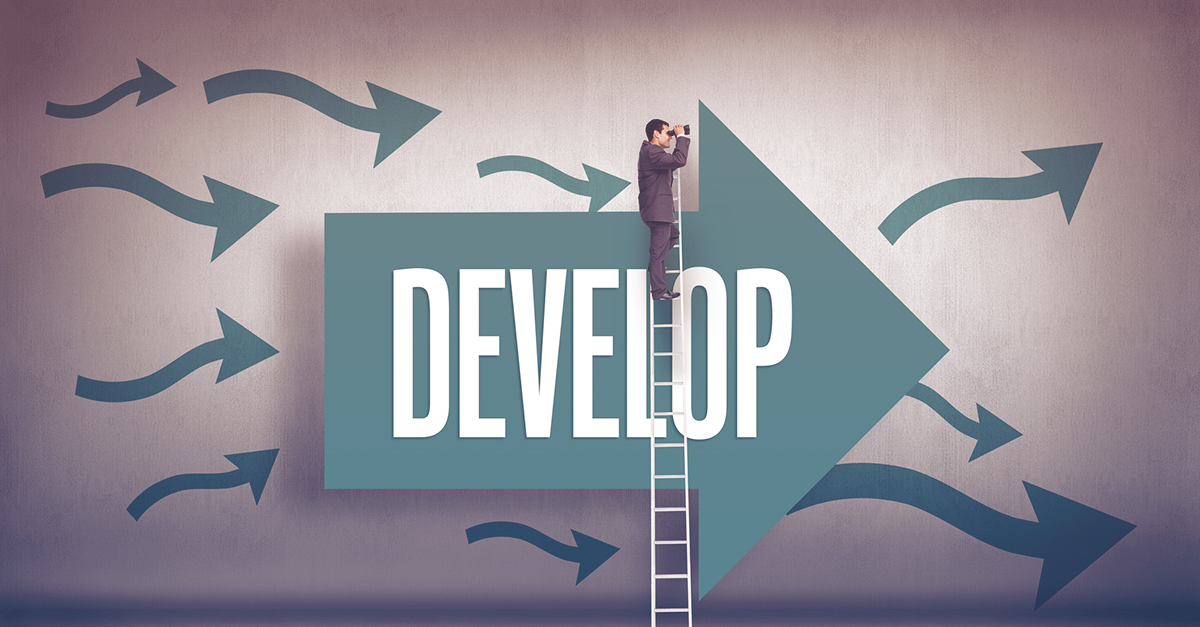
Within our complex economy, there is a movement afoot. The movement’s mantra is called “Develop, Develop, Develop.” Leaders need to pay attention to this movement because their employees certainly are.
As our economy is increasingly more service oriented, a company’s competitive advantage is now determined by their social capital—their people. It is the people’s capacity to build relationships and lead others that will determine a company’s success.
Develop, Develop, Develop!
Thus, the mantra for a high performing organization is: Develop, Develop, Develop! At the foundation, it is a movement seeking to improve the quality of others’ emotional competence and ability to learn.
Daniel Goleman, author of Working with Emotional Intelligence, states that in general:
“Two out of three competencies listed for the average job are emotional competencies. Compared with IQ and expertise, emotional competence matters twice as much. This is true across all categories of jobs, and in all kinds of organizations. Emotional competencies are found to be twice as important in contributing to excellence as pure intellect and expertise.”
Relationship skills, especially when they are combined with technical competence and talent, are the greatest predictor of future success. The ability to influence and work with others becomes the most important attribute of an effective manager or executive.
So, how is a culture created that focuses on developing and fostering these kinds of skills? How can we help others build strong relationships?
Four Steps to Start
The following four steps offer a beginning.
These steps can be applied at any level of an organization or in any industry. These steps will not only improve your emotional competency, but they will positively influence others in your team and your organization.
1. Reveal Your Goals:
We all know that example is the greatest teacher, so show others how much you are interested in developing your own communication and relationship skills. The greatest thing you can do is share your developmental goals with your team. Others will see that you value personal improvement. It will influence them to seek their own personal development, and they can act as a coach to help you achieve your own goals.
2. Listen Like Nothing Else Matters:
The critical ingredient in helping oneself and others improve is listening. We aren’t talking about the kind of listening you show when a telemarketer calls. We want intense listening that involves asking clarifying questions and not jumping to conclusions. Listen to others when they provide feedback concerning your own behavior. Listen to your people when they express dislike about something.
3. Give Stretching Assignments:
After you’ve listened and gotten to know your people, give each person a specific stretching assignment. Tailor each assignment according to a person’s individual strengths and weaknesses. For example, if a sales associate needs practice closing a sale, have him shadow a seasoned sales person for a couple of days.
4. Reflect and Follow-Up:
Periodically stop and reflect on your progress, make changes, and continue developing. Follow up with your people on their developmental goals. And follow-up with your clients to see if your relationship with them is improving.
Relationships are the name of the game, and we need to strengthen them. We need to start by focusing on one of the greatest needs we have: the need to develop.
Employees often tell us they want their managers to get to know them better, challenge them more often, and help them develop their potential. Consequently, managers who help develop their employees have significantly less turnover than others who are too focused on only making the numbers.
It is time to develop, develop, develop! Your employees will love you for it and your organization will achieve a key competitive advantage.










